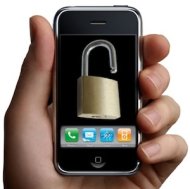
Apple's unlocked iPhone 4 is great for traveling abroad, but not much else
Why would you want an unlocked iPhone 4? That is a great question, and the answer is quite simple. If you travel on a regular basis and spend most of your time between countries, then the unlocked iPhone 4 is right up your alley. Buying an unlocked iPhone 4 exempts you from signing a contract — but in the end, the costs of being a free agent simply don't justify the rewards. But before we get into that, first let's explain how the unlocked iPhone 4 is different from a regular iPhone 4.
Which domestic carriers are compatible?
Up until the unlocked iPhone 4 was released, you could only use an iPhone on the AT&T or Verizon networks in the United States. But, that didn't stop people from using third-party software to hack their iPhones so they could use them on other wireless carriers such as T-Mobile.
T-Mobile happened to be the only other carrier that could support the unlocked iPhone 4, because it uses the same network that AT&T does. AT&T and T-Mobile are supported by the GSM (Global System for Mobile Communications) network in the United States, while Verizon and Sprint use the CDMA network. So if you were thinking of using the unlocked GSM iPhone 4 on Verizon or Sprint — forget it, it's not happening. If you're a T-Mobile customer who's excited about being able to use an iPhone, well, calm down ... because it's not that simple.

Is an unlocked iPhone right for you?
Add the potential merger between AT&T and T-Mobile, and it is possible that a regular iPhone will be available for T-Mobile customers in the near future. That would eliminate the domestic benefits of having an unlocked iPhone 4.
Unlocking the true cost
What makes buying an iPhone affordable is that the carrier subsidizes the actual cost of the phone, so you only have to fork over between $199 and $299 (depending on which iPhone 4 tickles your fancy, the 16GB or 32GB model). Carriers do that because they are locking you down for years of monthly payments.
With the unlocked iPhone 4, there are no strings attached. You don't buy the iPhone 4 from AT&T or T-Mobile — you buy it from Apple, paying between $649 and $749, depending on the size.
So which option is cheaper, buying a regular iPhone 4 for less and signing a contract, or paying more up front without any commitments? Technologizer's Harry McCracken crunched the numbers and deduced that a regular iPhone 4 costs less over the course of 2 years than an unlocked iPhone 4 of the same size. With the most basic data plan, the overall cost of the regular 16GB iPhone 4 came out to $1,758.76, compared to $2,208.76 for the unlocked 16GB iPhone 4.
We know that an unlocked iPhone 4 can only be used to its full 3G capacity on AT&T and that it is more expensive at both the point of purchase and over the course of a 2-year contract than a regular iPhone 4 on the same network. So why get an unlocked iPhone 4?
Why you need an unlocked iPhone
Travel. Travel, travel, travel. The only way an unlocked iPhone 4 makes sense is if you actively travel overseas or if you plan to live in another country. Aside from AT&T, T-Mobile is the only other big GSM carrier in the United States, but Europe and Asia are filled with them. China, Mexico, Germany, Russia, France, Spain, and the United Kingdom are just some of the countries that support GSM carriers.
If you have ever tried using your iPhone in another country, you might have fallen victim to astronomical roaming charges. Even if you purchase an international roaming package, you end up spending a sizable chunk of change. That's why it is important to look into international carriers and calling plans before you travel.
When you order your unlocked iPhone 4, you will notice that it lacks a micro-SIM card, which is necessary to operate your iPhone. A micro-Sim card can be obtained from the carrier you choose; it is possible to have multiple micro-Sim cards for different carriers and countries.
Imagine purchasing an unlocked iPhone 4 in the United States and choosing AT&T as your provider. Let's say that you'll be visiting London, so you can go ahead and order a regular or prepaid micro-Sim card for Vodafone, a compatible GSM provider in the United Kingdom. Once your plane takes off, you can switch the cards in your unlocked iPhone 4 and say goodbye to excessive roaming charges during your visit abroad.
If you work for a company that has offices overseas that you visit frequently, then an unlocked iPhone 4 would be the smart way to go. Maybe you are planning on moving to another GSM-friendly country for a year, and you don't want to buy a new phone when you get there and another new phone when you come back. At the end of the day, the only way you can justify buying an unlocked iPhone 4 is when you can choose between several carriers, and the only way that is going to happen is if you think globally.
Post by Trent Loomis
More from Tecca:
No comments:
Post a Comment